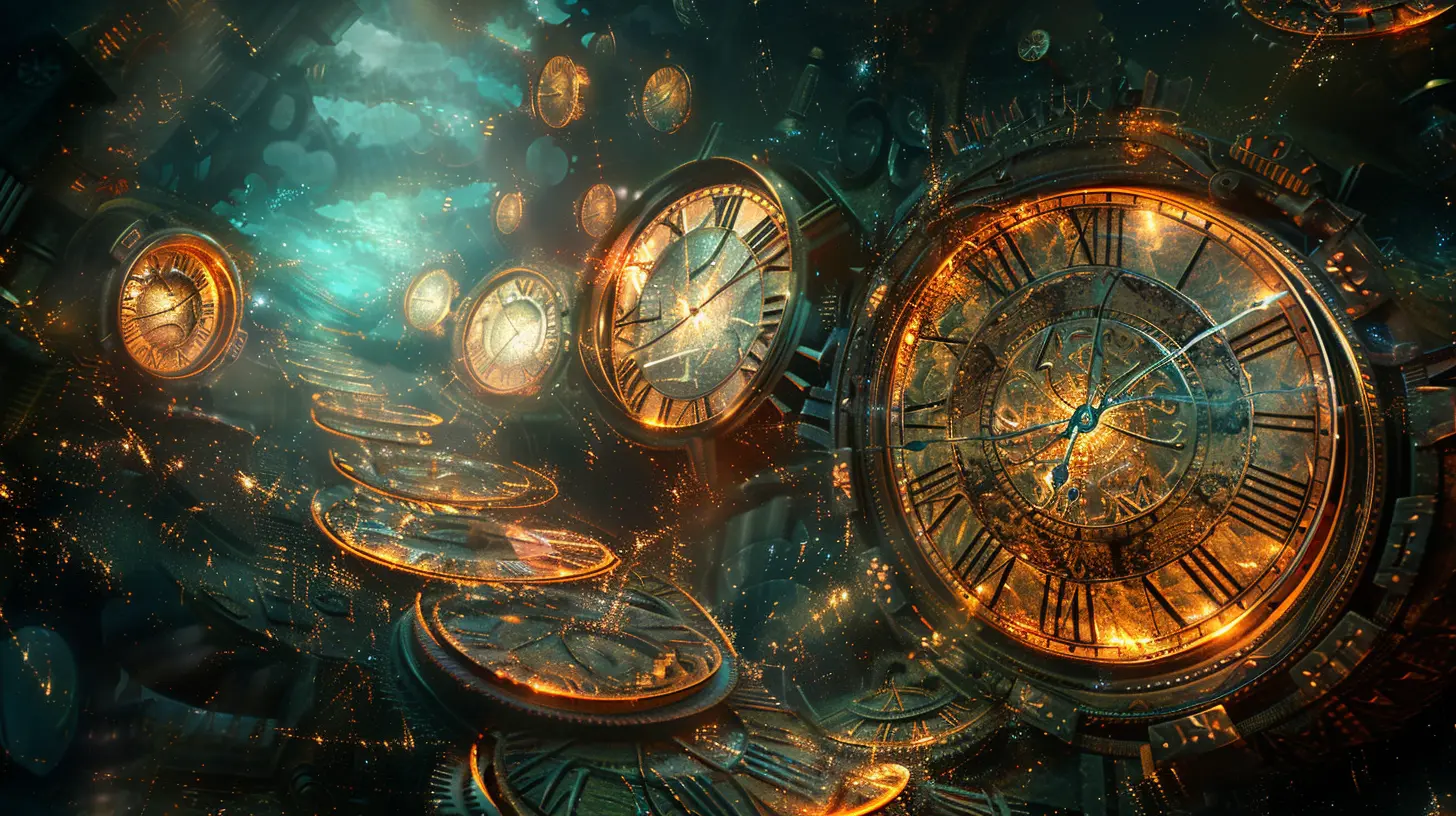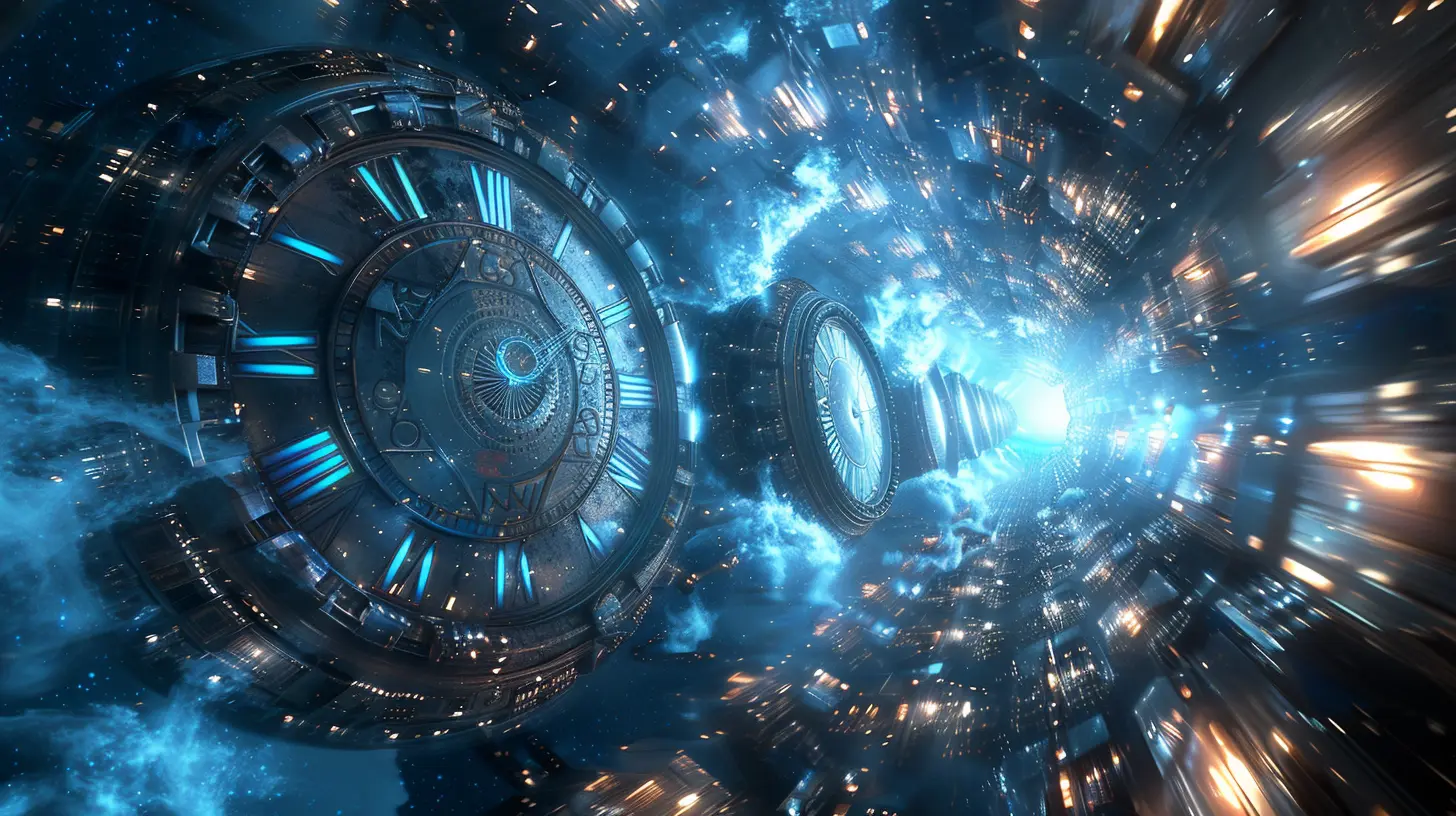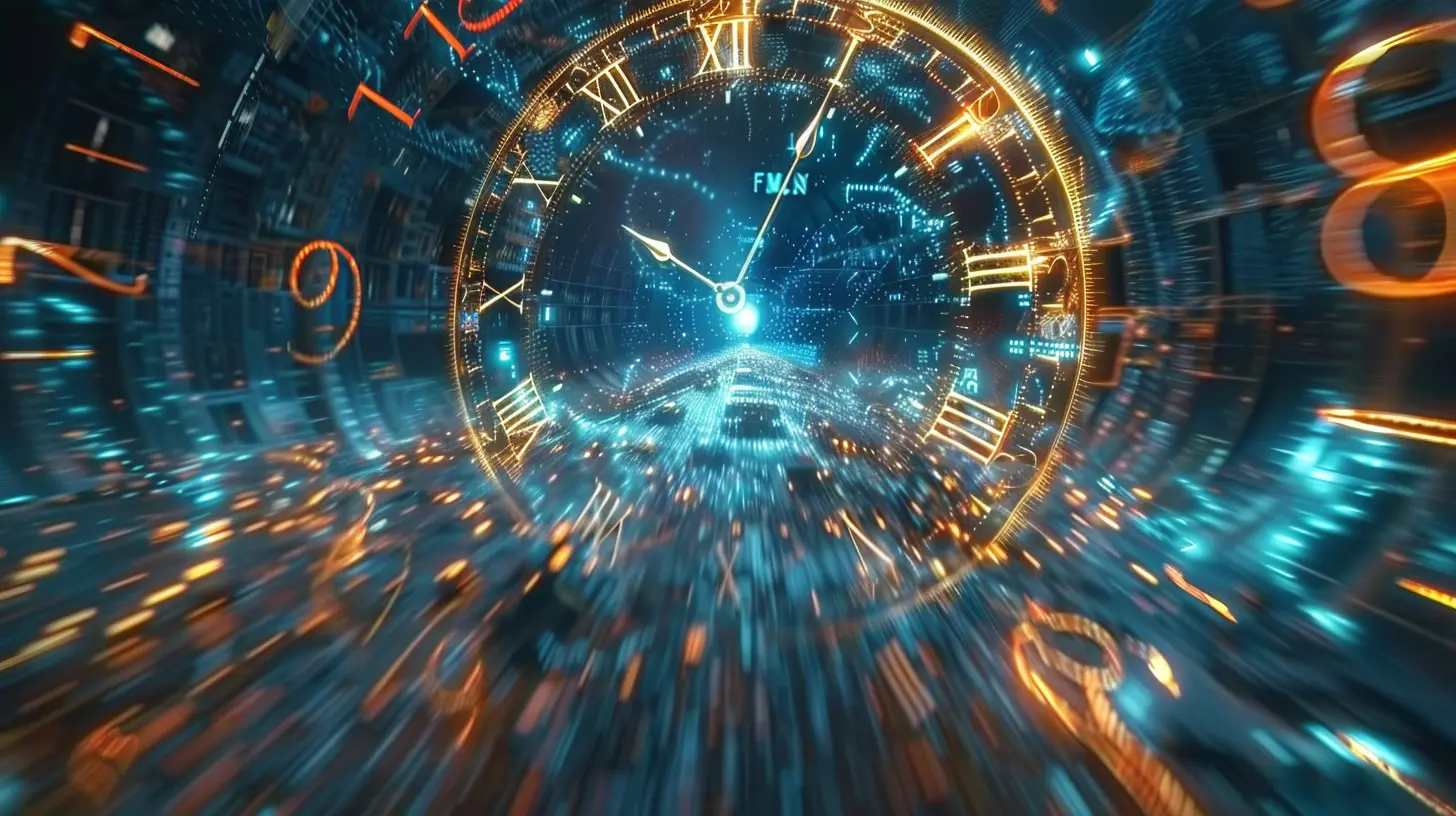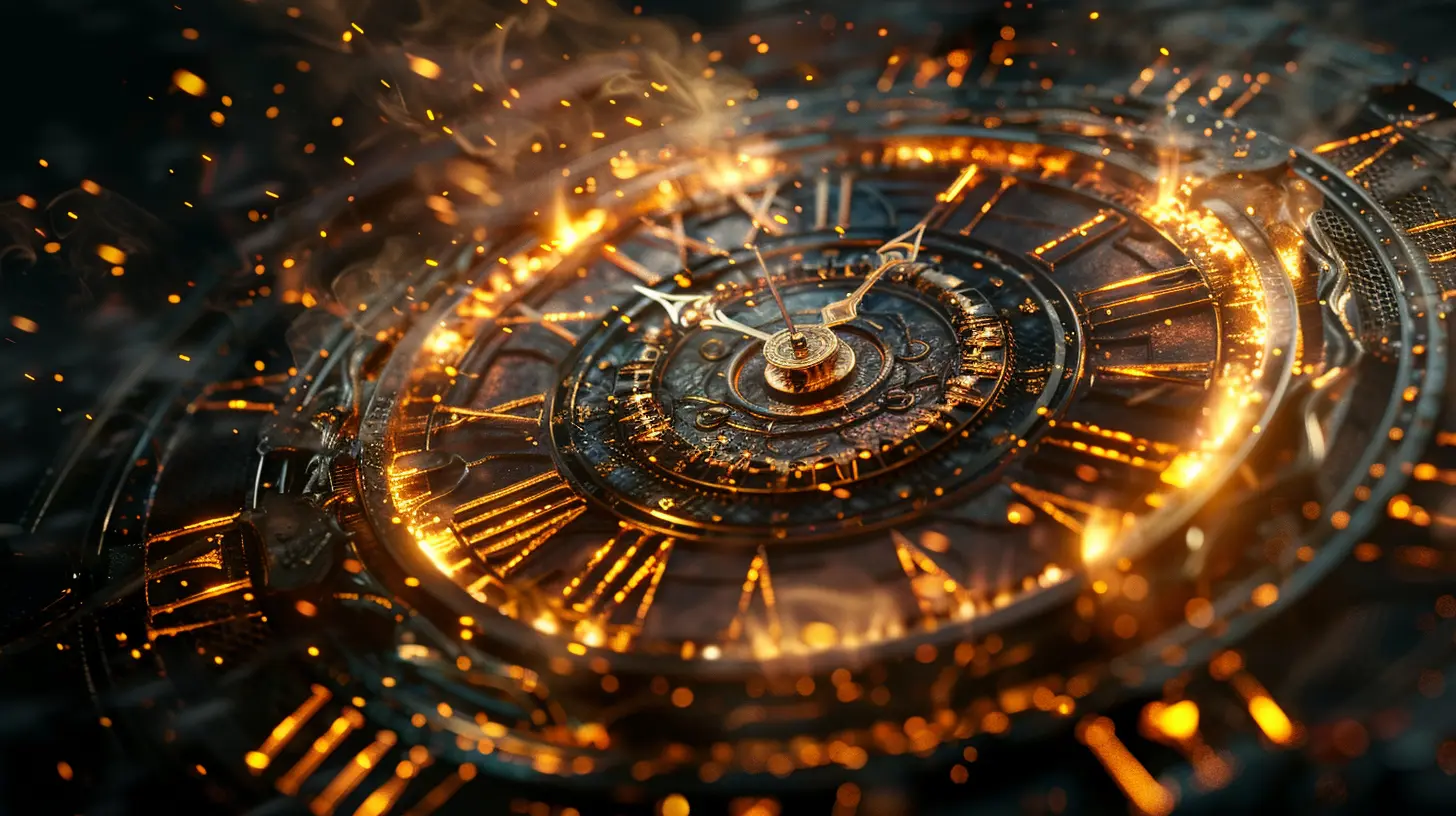Time Manipulation Mechanics: Slowing, Reversing, and Freezing Time
28 July 2025
Ever wish you could hit pause on life? Maybe rewind a conversation or slow things down just enough to dodge a mistake? It’s no surprise that video games have taken this fantasy and run wild with it. Time manipulation mechanics — slowing, reversing, and freezing time — have become some of the coolest features in modern gaming.
In this article, we’ll dive deep into how these mechanics work, why they’re so addictively fun, and the most iconic games that nailed this concept. Whether you're a game dev cooking up new ideas or just someone who loves bending the rules of reality in your favorite titles, stick around. This is going to be time well spent (pun totally intended).
What’s So Cool About Messing With Time?
Think about it. Most games rely on your ability to react fast. But what if you had the power to change the flow of time? Suddenly, your tactical toolbox explodes with possibilities. You’re no longer just reacting — you’re in control of time itself. That’s next-level power fantasy, and players absolutely love it.Time manipulation makes gameplay more dynamic and strategic. It turns difficult moments into puzzles, adds emotional weight to decisions, and gives gamers that satisfying "I-am-a-god" feeling. It’s not just a gimmick—when used right, it can completely redefine how a game plays.
Let’s Break Down the Big Three
1. Slowing Time: Bullet-Time Brilliance
You’ve probably experienced this in at least one game. Remember the first time you dove through a room in slow motion, watching bullets zing past, Matrix-style? That’s bullet-time, baby. Slowing time gives players a brief window to make fast-paced action more manageable — and flashy as hell.Why It Works:
- Gives players time to think during intense fights- Boosts cinematic flair and visual drama
- Looks. Just. So. Cool.
Games That Do It Right:
- Max Payne is hands-down the godfather of bullet-time. You leap through the air in a slow-motion ballet of bullets and blood — it’s gritty, stylish, and revolutionary.- Bayonetta turns dodging into an art form. Perfect a dodge, and the world slows down, giving you prime time to unleash combos.
- The Legend of Zelda: Breath of the Wild features a "slow-mo" arrow shot when you leap off a horse or cliff — surprisingly satisfying for a game not even focused on time manipulation.
2. Reversing Time: Take-Backs That Don’t Cheat
Messing up in a game can range from annoying to downright heartbreaking. But imagine being able to reverse time and try again — without the penalties. That’s the magic of time reversal!Why It Works:
- Reduces frustration from failure- Encourages experimentation and creativity
- Adds a puzzle-solving layer to gameplay
Games That Crush This Mechanic:
- Prince of Persia: The Sands of Time was way ahead of its time. You fall off a ledge? No worries, just rewind a few seconds. Problem solved.- Braid, a gorgeous platformer, is practically built around time reversal. Every level is a brain-teaser that plays with cause and effect in brilliant ways.
- Forza Horizon series lets you rewind time after a bad turn. It’s a godsend for perfectionist racers trying to nail a flawless lap.
3. Freezing Time: The Ultimate Pause Button
What if time just… stopped? You move, the world doesn’t. It’s like an ultra pause button, but for everything except you. Freezing time creates a surreal, strategic playground where you’re basically untouchable — but it’s also a test of how well you use your momentary godmode.Why It Works:
- Turns chaos into chess- Gives players full control over the battlefield
- Amplifies tension and creativity
Games That Freeze With Finesse:
- Dishonored 2 lets you freeze time with the "Time Stop" power, and what you do in that bubble determines the fate of everyone around you.- SUPERHOT innovates like crazy: time only moves when you do. Every action becomes a calculated move, and it never stops feeling cool.
- The Outer Wilds time loops back, but in those precious moments before the final reset, everything goes still — delivering a heavy emotional punch.

How These Mechanics Change Gameplay (For Real)
Time manipulation isn’t just a gimmick. It’s a game-changer — literally. Here’s how it shakes things up:More Player Agency
You’re not just reacting; you’re planning. With time on your side, you can map out your next move, dodge 10 enemies, or line up the perfect shot. It's like the chess of the action world.Better Difficulty Balance
Struggling players can use time powers to bridge the skill gap. It’s not cheating — it’s smart design. You still need to make good decisions, but everything becomes a bit more manageable and less punishing.Puzzle Potential
Time mechanics often come with puzzles that require outside-the-box thinking. It’s not just about when you act, but how and in what order. This adds depth and replayability in a big way.
The Psychology Behind the Fun
You know that incredible feeling when you narrowly avoid disaster? Time manipulation amplifies those feelings by giving you the tools to rewrite them. It taps into our desire for control — especially over things we usually can’t control, like time.Emotional Payoff
Fail, rewind, succeed. The emotional arc here is so tight and satisfying. Plus, it reduces rage quits and burnout. You feel empowered instead of punished.Adds Replay Value
When games let you master time, you start experimenting with new tactics. “What if I freeze time here instead of slowing it? What if I reverse after I trigger this boss fight?” That kind of freedom keeps players coming back.Time-Based Combat: Tactical to the Max
Combat plus time manipulation equals insanely fun fights. You go from button-mashing to mind-gaming your enemies.- Slowing time lets you aim precisely or dodge in style.
- Reversing time lets you bait enemies into mistakes and undo your own.
- Freezing time makes you a one-man army — if only for a moment.
And when devs include multiple time powers? Oh baby. That’s the ultimate sandbox.
Time Puzzles and World Interaction
Time isn’t just useful in a fistfight. It also adds layers to exploration and puzzle-solving.- Rewind crumbled structures.
- Freeze traps in mid-motion.
- Slow time to slip through fast-moving doors.
These mechanics bring worlds to life in clever ways. Suddenly, you’re not just solving puzzles — you’re manipulating the laws of reality to get what you want.
Challenges of Designing Time Mechanics
Let’s give a quick shoutout to all the game devs who take on the beast that is time manipulation. It’s hard to get right.Balancing Is a Nightmare
These powers are awesome, but too much power can break a game. Devs have to think hard about cooldowns, limits, and when players can use these abilities.Technical Hurdles
Tracking every moment — so it can be rewound or frozen — can be a massive strain on performance. That means clever coding, tons of testing, and constant optimization.Keeping It Fun
Let’s be honest. If every moment is slow or frozen, it can get boring. Time powers need to be special — not just another tool, but a treat.Indie Games Take the Lead
A lot of the most exciting time mechanics in recent years? They’ve come from indie devs. Smaller teams can take creative risks that big studios often avoid. And the result? Absolute gems that play with time in ways you’ve never seen before.Keep an eye on the indie scene — you’ll find all kinds of wild experiments with reversed causes, shifting timelines, and even time as a currency.
Where It's Heading: The Future of Time in Games
VR and AR are already playing with time mechanics in weird and wonderful ways. Imagine slowing time not just in a game, but around your physical movements. Mind. Blown.We’re starting to see games tie time mechanics into narratives more deeply, too. Not just as a power, but as a theme — examining memory, regret, and second chances. As tech evolves, expect more personalized time mechanics that adjust to how you play.
Final Thoughts
Time manipulation in games? It's more than just flashy effects. It changes how we think, move, and feel. Whether you’re reversing a fatal fall, slowing time for a perfect headshot, or freezing everything to breathe in the chaos — it feels like magic.Games that get it right make every second count. And let’s be honest, who doesn’t love a second chance?
all images in this post were generated using AI tools
Category:
Game MechanicsAuthor:

Leandro Banks
Discussion
rate this article
2 comments
Benjamin Wolfe
Time manipulation in games is like adding a sprinkle of magic to the mundane! Who wouldn't want to freeze time at dinner to savor that last slice of pizza? 🍕⏳
October 27, 2025 at 5:26 PM

Leandro Banks
Absolutely! Time manipulation adds a unique twist, enhancing gameplay and making even the simplest moments, like enjoying pizza, feel extraordinary! 🍕✨
Misty McClary
This article beautifully captures the intrigue of time manipulation in games! The mechanics of slowing, reversing, and freezing time add a unique layer to gameplay, encouraging creativity and strategic thinking. Can’t wait to see how these concepts evolve in future titles! Keep up the great work!
July 29, 2025 at 3:22 AM

Leandro Banks
Thank you for your kind words! I'm glad you enjoyed the article and the exploration of time manipulation mechanics. Exciting developments are definitely on the horizon!


